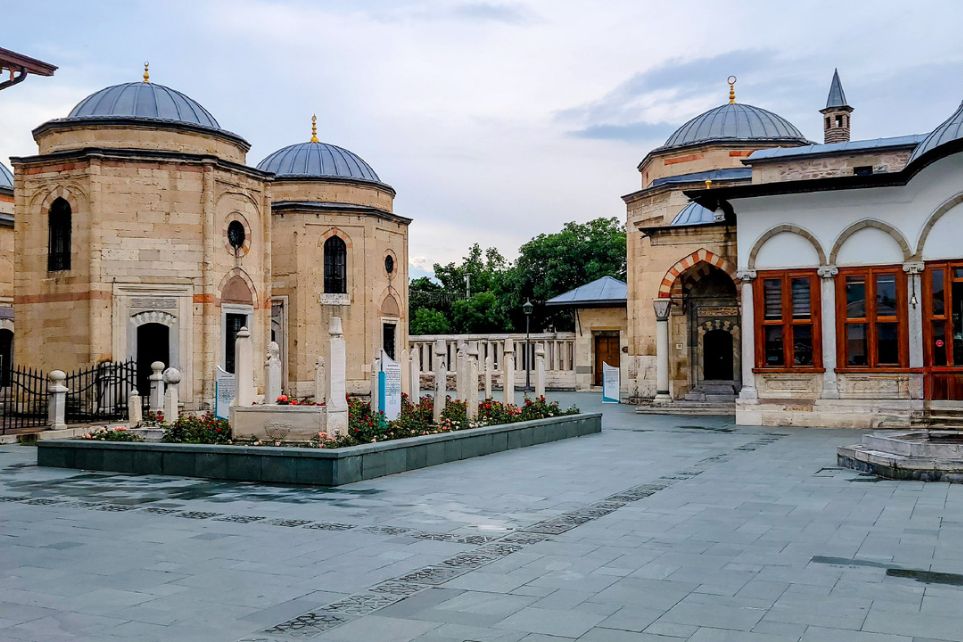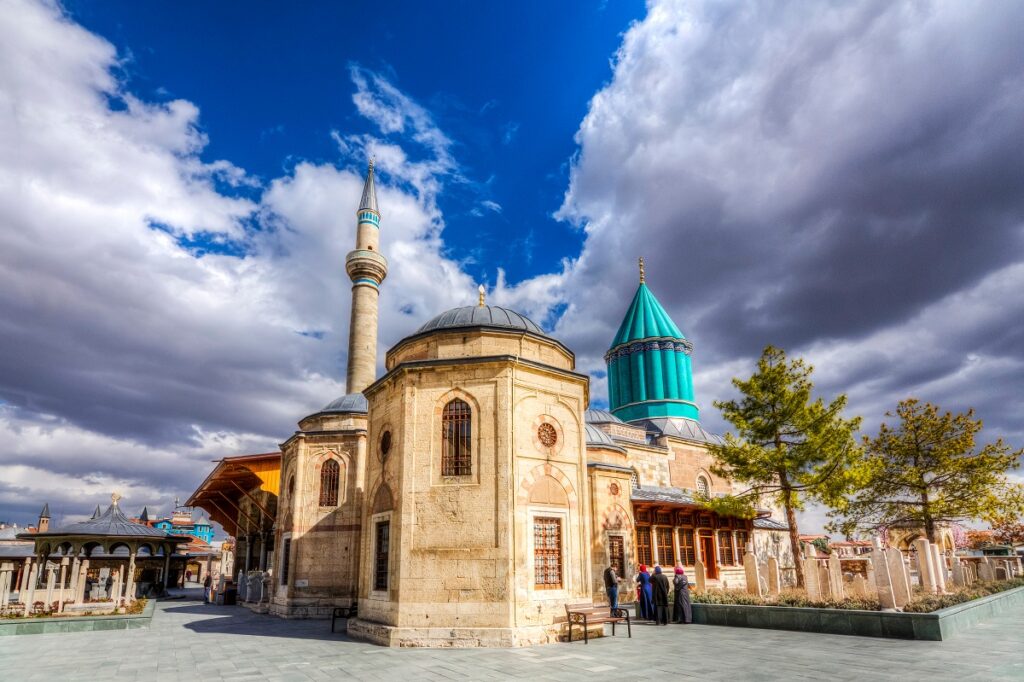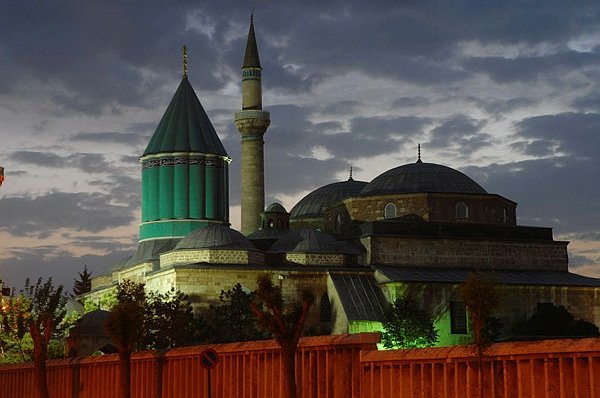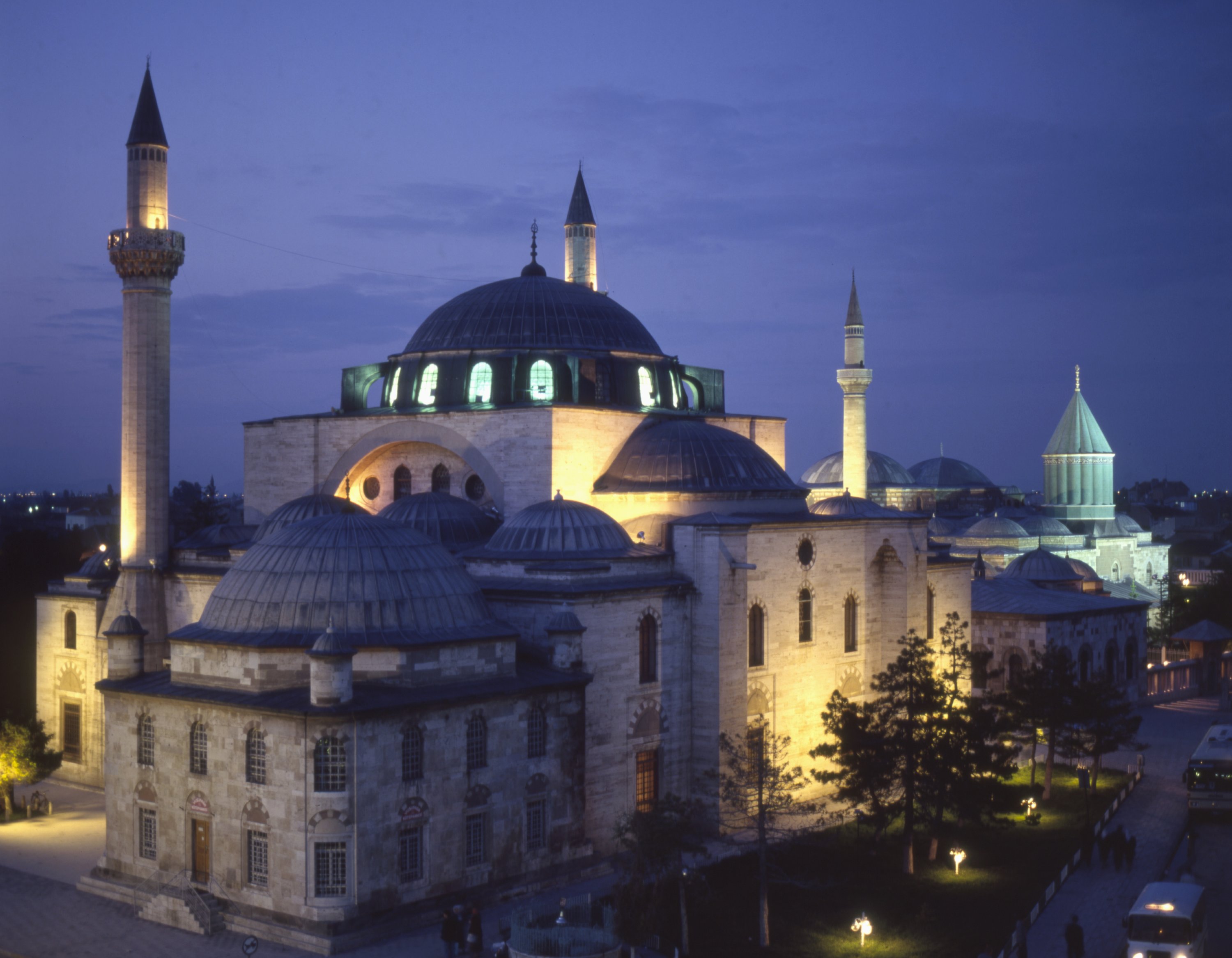Whirling Through Time: Konya's Mevlana Museum Enchantment

Welcome! In this post, we will be discussing the enchanting Mevlana Museum in Konya, Turkey. This museum holds an incredible history and is a must-visit destination for anyone travelling to Turkey. If you're interested in Turkish history and culture, this is the perfect place!
Brief History of Konya's Mevlana Museum Enchantment
The Mevlana Museum, the Green Mausoleum, was once the home of the famous poet and philosopher Mevlana Rumi. After he died in 1273, his followers converted the home into a mosque and later established it as the dervish lodge. Today, it's a museum that displays artefacts from Rumi's life and the beginnings of the Mevlevi order. The Mevlana Museum has become a popular destination for tourists and locals and is a UNESCO World Heritage site.
Overview of what to expect in the post
This post will discuss all the incredible things you can expect to see and do at the Mevlana Museum in Konya. We'll cover the museum's history, exhibits and galleries, and tips for making the most of your visit. We'll also compare the Mevlana Museum to other historical sites in Turkey so you know what to expect. By the end of this post, you'll be an expert on all things Mevlana Museum and ready to start planning your visit!

The Life and Teachings of Mevlana Rumi
Welcome to the Mevlana Museum, where you'll discover the mesmerizing world of Mevlana Rumi. This Turkish poet and philosopher has been recognized worldwide for his inspiring words of wisdom, and this museum is an excellent way to dive deep into his life and teachings. Let's explore the background and life events of Mevlana Rumi, as well as his philosophy.
Mevlana Rumi's background and life events
Mevlana Rumi was born in 1207 in Balkh, which is present-day Afghanistan. His family fled the Mongol invasion, eventually landing in Konya, Turkey, in 1228. Mevlana lived in Konya until he died in 1273. Mevlana Rumi's father was a famous theologian, and he began his education with him. He further went on to study in Damascus, where he became a famous scholar himself. However, after meeting the wandering dervish Shams-i-Tabrizi, Mevlana's life took a new path.
Mevlana Rumi's teachings and philosophy
One of the key concepts in Mevlana Rumi's philosophy is the concept of love. He believed in the divine love transcending all boundaries and the love between human beings and the divine. Love as a central theme in his works and philosophy is evident in his poetry, where he often uses metaphors to express love's power. Another crucial concept in Mevlana Rumi's philosophy is the idea of unity. He believed that all religions shared the same spiritual essence and that the goal of a spiritual seeker was to attain unity with the divine.
Now that you know a bit about Mevlana Rumi's life and teachings, you'll have a deeper understanding of the exhibits at the Mevlana Museum. Explore every corner of the museum, and keep your eyes open for these themes within the exhibits. You'll leave with new insights and a richer understanding of Turkish history and culture.

The Museum Complex
The Mevlana Museum is where you can immerse yourself in the fascinating world of Mevlana Rumi. As you explore the complex, you'll discover a wealth of information about his life, teachings, and philosophy. Let's take a closer look at the different aspects of the museum complex.
Layout and architecture of the museum complex
The Mevlana Museum is an impressive complex with several buildings, including a mosque, a library, and a mausoleum. The buildings are intricately decorated with vibrant tiles, mosaics, and calligraphy that showcase Turkey's rich cultural heritage. The garden outside the complex is a peaceful oasis where you can relax and reflect on the exhibits you've seen.
Key exhibits and collections in the museum
The exhibits in the Mevlana Museum are thoughtfully curated and provide insights into Mevlana Rumi's life and teachings. Highlights include rare manuscripts, intricate illuminations, and stunning calligraphy. You'll also find displays of traditional Turkish clothing, furniture, and art that give you a sense of the country's history and culture. Make sure to look out for exhibits that focus on Mevlana Rumi's philosophy of love and unity, central themes throughout the museum.
You'll gain a deeper appreciation of Mevlana Rumi's life and teachings as you explore the different buildings and exhibits in the Mevlana Museum. The museum is a must-visit destination for anyone interested in poetry, philosophy, or Turkish history and culture. So why not plan a visit today?

The Whirling Dervishes
Are you ready to witness one of the most mesmerizing performances in Turkey? Then, the Whirling Dervishes ceremony at the Mevlana Museum is a must-see experience! In this section, we'll delve into the history and background of the Whirling Dervishes and give you an overview of the ceremony itself.
History and Background of the Whirling Dervishes
The Whirling Dervishes are a Sufi order that originated in the 13th century in Turkey. Mevlana Rumi, the founder of the order, believed that the practice of turning, or whirling, was a form of meditation that allowed them to connect with God. The spinning motion, accompanied by music and chanting, was said to induce a state of trance and enlightenment.
Overview of the Whirling Dervish Ceremony
The Whirling Dervish ceremony is a spiritual and artistic performance lasting around an hour. The dervishes are dressed in traditional white robes and tall hats, symbolizing their journey towards unity with God. The ceremony begins with prayers and music, and then the dervishes start to turn at a slow pace. As the music intensifies, they spin faster and faster, with arms outstretched and eyes closed. It's a truly mesmerizing sight!
Book tickets for the Whirling Dervish ceremony if you're planning a visit to the Mevlana Museum. It's an unforgettable experience that will give you a deeper understanding of Turkey's cultural and spiritual heritage.

The Mevlevi Lodge
Are you planning a trip to Turkey? If so, add the Mevlevi Lodge to your list of must-see destinations. In this section, we'll explore this unique cultural site's history, significance, and architecture.
History and significance of the Mevlevi Lodge
The Mevlevi Lodge is a historic complex located in Konya, Turkey. It was built in the 13th century as a place for the followers of Mevlana Rumi, the founder of the Mevlevi Sufi order, to gather and worship. The Lodge played an essential role in developing and spreading Sufism throughout the Ottoman Empire, becoming a centre for spiritual and intellectual pursuits. Today, it symbolises Turkey's rich cultural heritage and attracts visitors worldwide.
Architecture and design of the Lodge
The Mevlevi Lodge is a stunning example of Islamic architecture and design. The complex contains a mosque, a shrine, a seminary, and several tombs. The buildings are constructed from stone and decorated with intricate tilework, calligraphy, and geometric patterns. The mosque features a large dome and a minaret, while the shrine houses the tomb of Mevlana Rumi. The seminary was once a centre for learning and education and featured a beautiful open-air courtyard.
Overall, the Mevlevi Lodge is a fascinating destination for anyone interested in Turkey's religious and cultural history. Be sure to spend plenty of time exploring the complex and taking in its beauty and significance.

The Tomb of Mevlana Rumi
If you're planning a trip to Turkey, visiting the tomb of Mevlana Rumi is a must-see destination. In this section, we'll explore this remarkable site's location, history, design, and significance.
Location and history of Mevlana Rumi's tomb
The tomb of Mevlana Rumi is located in Konya, Turkey. Mevlana Rumi was a 13th-century Sufi mystic and poet who founded the Mevlevi order of Sufism. His tomb is within the Mevlevi Lodge complex, built in the 13th century as a centre for the Mevlevi Sufi order. Today, the tomb is a popular destination for visitors who want to pay homage to this spiritual leader.
Design and structure of the tomb
The tomb of Mevlana Rumi is an impressive example of Islamic architecture. The tomb is covered with a green velvet cloth, and inside is a beautifully decorated marble sarcophagus. The surrounding area features ornate tilework, calligraphy, and a peaceful courtyard with a fountain. The museum is adjacent to the tomb and houses artefacts related to Mevlana Rumi's life and teachings.
Overall, Mevlana Rumi's tomb is of great historical and cultural significance. As you explore this remarkable site, you will better understand one of Turkey's most revered spiritual leaders.

The Rose Garden
If you're searching for a tranquil paradise, the Rose Garden should be on your list. This section will show you why this garden is worth visiting, how it came to be, and what you can expect to see there.
Importance and history of the Rose Garden
The Rose Garden is a stunning oasis in the heart of Istanbul, Turkey. It was established in the 17th century during the Ottoman Empire and is believed to have been a favourite of the Sultans. It was closed to the public for a long time, but since the 1950s, it has been open to all visitors.
Most importantly, the Rose Garden is a sanctuary. The aroma of the flowers and the tranquil setting are thought to promote a calming effect on visitors, helping them escape the stress of city living.
Description and features of the garden
The garden spans over 40 acres and boasts over 20,000 bushes of roses. It is divided into four sections, each named after one of Turkey's famous poets. You will find a variety of roses like Damask, China, and tea roses. The garden also features other plants like pine, cypress, and cherry trees, which add to the beauty of the scenery.
One unique aspect of the garden is that it's not just for sightseeing – you can purchase freshly picked roses and rose oil products. The garden staff will helpfully guide you to choose the right product. If you need more than a souvenir, the garden has a restaurant where you can enjoy freshly prepared dishes.
Overall, the Rose Garden is an enchanting getaway in the heart of a bustling city. Seeing the beautifully arranged plants and the sweet fragrance of the roses will leave you feeling refreshed, calm and ready to tackle your next adventure.

Festivals and Events at Mevlana Museum
If you plan to visit Turkey, check out the various festivals and events hosted at the Mevlana Museum in Konya. Here's an overview of what you can expect to see.
Overview of festivals and other events hosted at the museum
The Mevlana Museum is famous for being the final resting place of Rumi, a famous Islamic mystic poet. The museum hosts various events throughout the year, including Whirling Dervish performances, poetry readings, and Sema ceremonies. The events allow visitors to glimpse Turkey's heritage and the spiritual significance of Rumi's teachings.
Key festivals and their significance
| Festival/Event | Date | Significance |
|---|---|---|
| Urs Festival | 17-24 December | Celebrates the death anniversary of Rumi and symbolizes the union between man and God through music and dance. |
| Shab-e Arus | 17th December | This night-time event commemorates Rumi's union with God and includes Whirling Dervish performances. |
| Rumi Festival | 2-17 December | Celebrates Rumi's teachings and poetry with various events, including music, dance, and poetry readings. |
The Mevlana Museum is a must-visit destination in Turkey, especially during festivals and events. These events are culturally significant and help visitors understand the deeper meaning behind Rumi's teachings.

Recommendations and tips for visitors
The Mevlana Museum authentically showcases Turkish culture. Be sure to attend the Whirling Dervish performance and poetry readings. The Rumi Festival is an excellent opportunity to learn more about this influential figure in Turkey's history. Refrain from wearing any revealing or skimpy attire as a sign of respect to the spiritual environment. Lastly, come with an open mind to take everything in.
Whether you visit The Rose Garden or the Mevlana Museum, there's always something fascinating to do in Turkey. These destinations provide unique experiences where visitors can enjoy historic and cultural significance. Don't forget to capture beautiful memories of your time there.
